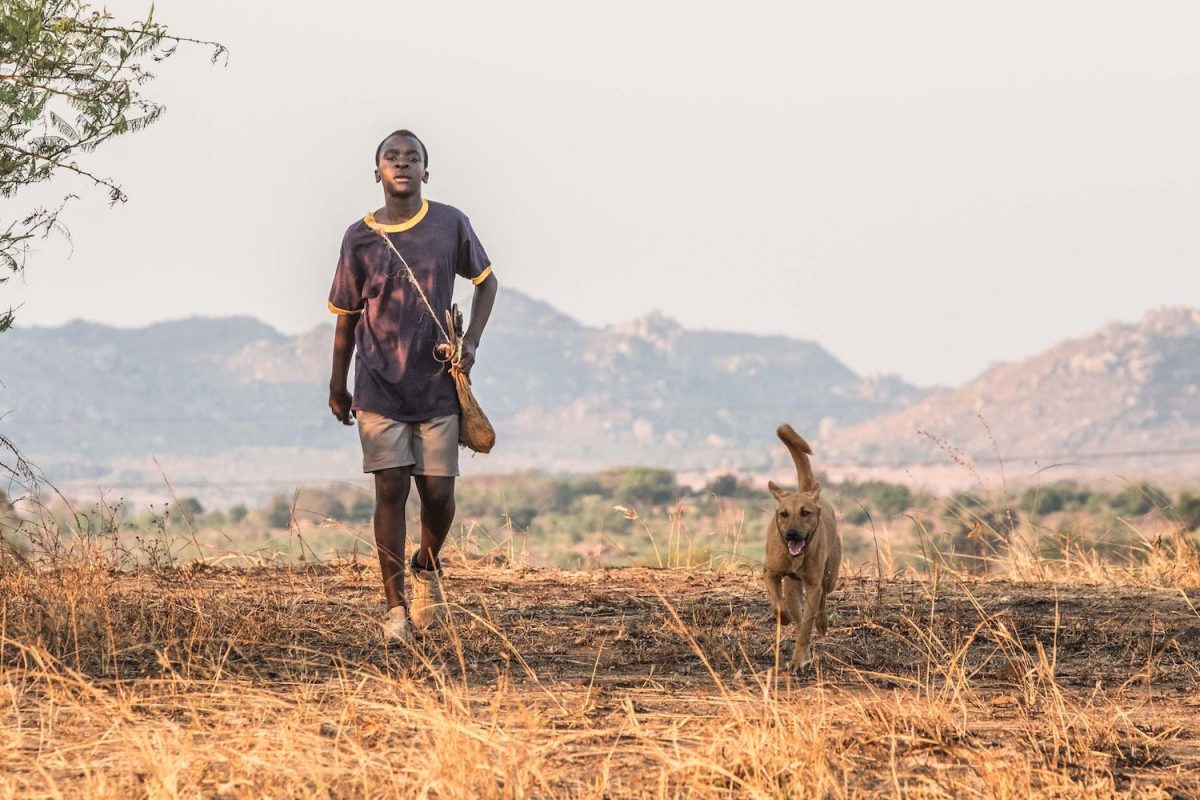Growing up, one of my favorite movies to watch was October Sky. It is the story of 4 boys from a small mining town who study the science of rockets; they even make the study of calculus a critical plot point to proving their innocence in a crime! STEM (Science, Technology, Engineering, Math) positive movies are rare to find because Hollywood deems them too boring to succeed. However, when you watch October Sky, The Martian, or Chiwetel Ejiofor’s The Boy Who Harnessed the Wind, you hope more good movie producers will see the long term benefits (financially and in society) of someone getting ahead by learning something tangible and real, and how EVERY high school class on the planet will watch their film.
The wind being harnessed is in a tiny village in Malawi, Africa. The titular boy is William Kamkwamba (Maxwell Simba), part of a family of 5 who farms the land and provides corn/grains for the village. William’s parents Agnes (Aissa Maiga) and Trywell (Chiwetel Ejiofor) are excited to send him to school to get an education just like their daughter Annie (Lily Banda). However, as William’s mind begins to blossom from his science lessons, political pressures and climate change threaten the village’s crop output this season. With dry season in full swing, Trywell tries to persuade Chief Wembe (Joseph Marcell) to ask the Malawi government for aid, while William learns about wind turbines, which might help bring enough water to grow crops during the dry season.
The Boy Who Harnessed the Wind is Chiwetel Ejiofor’s first screenplay and first directing effort, clearly touched by William’s story. Much like Bradley Cooper last year, it looks like Ejiofor has the chops to do this full time if he wants to. Ejiofor realizes early on that most people will probably understand the science because William is using things people see in their normal lives (Wind Turbine, car battery, radio, etc). So the director’s biggest task is making people understand how rare and important that science is in Malawi by transporting us there. The Kamkwamba family’s village relies solely on farming production, so it is subject to the whims of the weather, forcing the family to dig deep and find savings when the weather is bad. In addition, resources are razor thin for anyone to either escape or try to help. For instance, a corporation comes in and buys land from desperate villagers and cuts down the trees….which floods the farming fields hurting production. Government inadequacy also helps create a tense situation when the Chief is at odds with the leaders of the country, maybe forcing further resources out of the village. And what if you want to learn? Well, the school’s library is held under lock and key because of how rare books are to study, and resources are so tight that not every parent can even send kids to learn, forcing them to fend for themselves, like William after 1 semester. From minute one, pretty literally actually, Ejiofor sets the stakes for how razor thin family success is for the Kamkwamba family.
Surrounded by dire situations, Ejiofor then builds his story around the Kamkwamba family. Trywell is not like the other villagers: he had once worked in other countries, but eventually came back to raise a family with his wife Agnes. Their bond is strong, which keeps the family together in spite of the pain and suffering surrounding them. There’s no melodrama here: the conversations feel real and grounded, with each partner listening to one another and making decisions together. I knew Ejiofor would bring the talent, but Aissa Maiga matches him step for step, and probably gets two of the best moments in the movie showing off her acting skills. William’s sister Annie is a nice counterpoint to William. Both are gifted at school, but Annie slowly realizes she wants to get out of her village, but William wants to use his smarts to help. Ejiofor writes 4 distinct individuals that we grow with, worry about, and cheer for as the winds are being harnessed around them.
The Boy Who Harnessed the Wind is further proof in the power of education. Having listened to a conversation about private vs. public school in my town, to see a place where the conversation is NO education vs. SOME education is truly heartbreaking. People actually break IN to the library to study! It reminds me just how formative math and science were to my own growth as a person, and how they’ve informed the man I have become today. I hope Netflix keeps telling stories like William Kamkwamba’s if only because some rich person might see it and start trying to raise money to get universal education across the planet.

